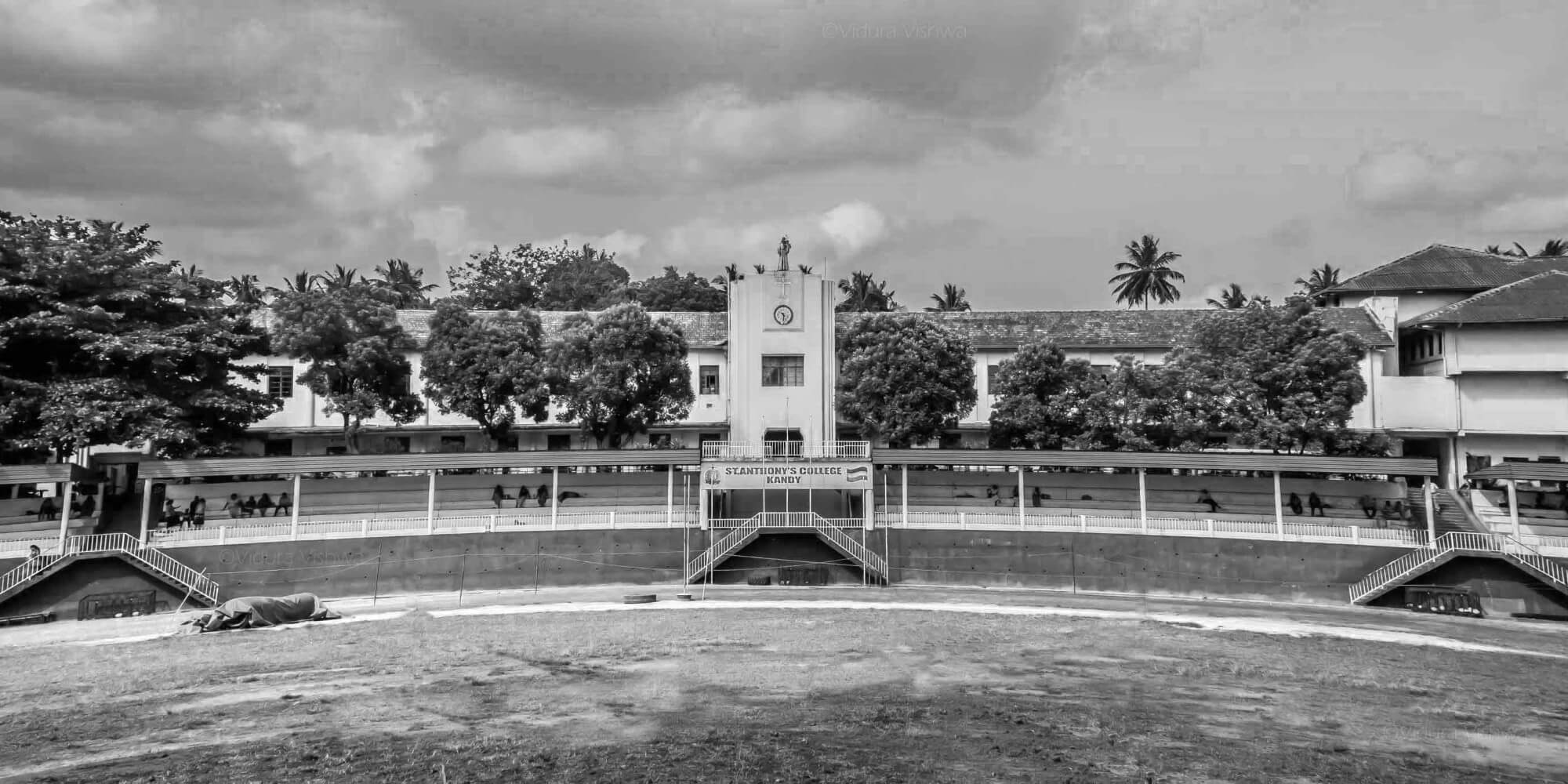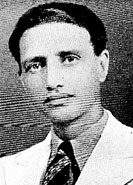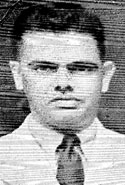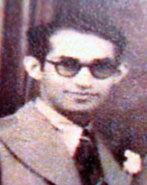Address
SACKOBA HQ,
St. Anthony’s College,
Kandy, Sri Lanka 20000
Email Address
secretary@sackoba.lk
editor@sackoba.lk
Address
SACKOBA HQ,
St. Anthony’s College,
Kandy, Sri Lanka 20000
Email Address
secretary@sackoba.lk
editor@sackoba.lk

I would consider it gross ingratitude to forget the contribution made by these three gentlemen – Robert Wright, George Macky and George Denlow to St. Anthony’s College, Katugastota which they attended as students, and thereafter served for many years loyally as teachers. They not only taught their subjects assiduously and with great zeal and skill, they also instilled in all of us privileged to pass through their hands, the great traditions of the school and its uncompromising values.

The College Magazine of 1947/48 pays tribute to Robert Wright and George Macky who were celebrating 25 years of teaching at St. Anthony’s. About Robert Wright it is said that he; “excelled in every department of the game. Apart from his brilliance as a batsman and bowler his fielding it is claimed “there was no one to equal him”.
A tribute to ‘Bob Wright’ as a boxer says that: “he was lithe as a panther and devastating in attack. There was a fascinating quickness in his movements that eluded most opponents and led them on to the final clinch and the inevitable extinction”.
He had also been an outstanding soccer player and had been an integral part of the Old Antonians team which won the championship of the Kandy District Football League. This was not all – and the mind boggles at his versatility- it is said: “as a hockey player he was a wizard carrying over to his game something of the quickness and grandeur that characterised him as a boxer”.
It is mentioned that in 1923 his versatility as a sportsman: “was pledged to maintaining a splendid tradition of sport built up by men of the calibre of Anderson and Wright himself”.
When “Bob” Wright joined the staff, he was a well known personality, and could have secured employment anywhere because of his qualifications and his sports record. In fact, even if he had lacked any other talents his personality was such that most employers would have identified him as a born leader of men. Fortunately for us, the school and its wellbeing came first!
He joined the College as a Science master and as early as 1948, the Magazine claims that he had already produced many brilliant students who adorned various professions. He taught officially till 1959 and the tribute to him in the “Antonian 1956-59” written by George Denlow is a gem.
He tells us among other things, that Robert Wright was a member of the team when Jack Anderson played his record breaking knock of 291 and that Wright contributed with his spin bowling and agile catching to make the team a formidable one.
When I first entered the class of Mr. Wright my first impression of him was that he was made of steel and although his eyes did twinkle at times he was hard as nails. The first time I got my algebra wrong he caned me but before doing so he said wryly: “I say Franklyn, I dusted your father’s pants and your brother Ranjit’s pants and now I shall dust yours as well”! I don’t think any student ever resented Bob Wright for having dusted his pants although the caning which was carried out with a deft flick of the wrist was rather painful and feared by all.
He was thorough with his “Hall & Stevens” Text Book and would in a voice which was rich and authoritative say: “open your books to page….” And when we had finished he would give the answer without looking at the book. He perhaps had taught from that text for many years!
Having officially retired Mr. Wright continued to teach. Mr. Wright, when the college was finding it difficult to find a coach, stepped in and was our cricket coach in 1961. He would bowl to us in his impeccable cream tussore trousers, white shirt, tie and well polished shoes.
He was long past his best, but his heart was very, very large and he loved the school and the game passionately. Mr. Denlow in his tribute says: “ Boys of St Anthony’s remember in times to come that, if things like loyalty to the school cease to matter, it will be still your duty to see that the score keeps mounting on the score board if only for the sake of people like Mr. Wright whose constant anxiety for the past thirty years has been that the school should do well and the score should keep mounting.

The ‘Antonian of 1960-62’ paying tribute to George Macky on his retirement commences with this statement: “A lad of life, an imp of fame”. It goes on to salute George Macky for his association with the school for more than fifty years. The article states: “ Having been a brilliant scholar, an excellent sportsman and an actor and a singer of no mean repute, his all round achievements have proved a source of great inspiration to many generations of Antonians.”
He joined the school in 1912 and captained the Cricket team in 1921. He excelled in football and Hockey. In 1922 he had the distinction of being the first Antonian to pass the Intermediate in Arts of the London University, which he accomplished whilst still in College. He subsequently graduated from the London University. During the years 1926-32 he captained the Old Boys Football Teams which won the Miller and Winchester Cups in successive years. He also coached the Football and Cricket Teams.
The magazine of 1947-48 has a tribute to Mr. George Macky. He had captained the Cricket team in 1921 and of course his son Michael captained in 1964 and 1965. Two other sons Louis and Dicky also played for college.
The Principal in his Report in 1947 notes that the team lost three and drew two of the matches during the previous year. The report indicates that the school had emerged ‘after four years of exile’ and it is probably a reference to the war and its impact on the school. Reference has been made to John Halangoda’s ‘prowess as a cricket coach’ and also the contribution made by Messrs LV Berenger, Robert Wright and George Macky in assisting the cricketers.
He was Director of Studies and his excellence as a teacher was acknowledged as being the result of his ability to understand a student and induce him to achieve thoroughness to the same extent as his superlative master. The magazine of 1947-48 refers to him thus: “Generations of Antonians have looked with affection and respect on that face…. They read in it lessons which they cherish for life. Beneath a veil of sternness you see a core of genuine kindliness.”
I encountered Mr. Macky in the GCE Ordinary Level class, but had been brought to his notice before because my father knew him, and also, I had become a close friend of Michael from the time I joined the Under Fourteen Cricket Team. I can say that my love for Mathematics commenced with my coming under his tutelage and I grew to enjoy my Mathematics thanks largely to his skill in making the learning of the subject an intellectual pursuit and joy.
One undying memory of George Macky is the sense of loss he exhibited on the death of his beloved wife. I remember him wandering around the grounds and sometimes seated under the Pride of India Tree looking as forlorn as one could ever be. When I lost my own wife I used to often think of how hard it would have been for him after being married for so long!
I also remember an incident which showed what a fine balance he had in his mental approach to life, what education was about, and his sense of values. I was waiting for my car to go home for the holidays and I was seated with my friend and classmate Lal Gunasekera who later became a Neuro Surgeon. Mr. Macky walked up to us and we jumped to our feet. He asked me what my position in class had been. I had been around the fifth and Mr. Macky had a disgusted look on his face and he said : “I say, what do you think your father would say?” He then turned to Lal with a mischievous glint in his eyes and said: “I say you must have come first? But what’s the use you cannot hold a bat!”
I recall that Mr. Macky, after I had been appointed a prefect walked up to me and congratulated me and said: “I say Franklyn, I voted against you, because your father is my friend”! That was the ethical standard of the man I sincerely believe was God’s gift to education and I thank God for having given us the opportunity to have someone of his stature as a mentor.

George Denlow lived to within four years of his centenary! At the age of 92 he wrote his memoirs which demonstrated that he had not lost his writing skills and wit. His mellifluous language is in great evidence in that document which I was privileged to read because he sent a copy to my brother Ranjit. He says in his book that Ranjit had in one of his own publications mentioned that the two people he owed his education and moulding in life, were his mother and George Denlow, which he regarded as the type of tribute which a teacher yearns for!
Mr.Denlow was the author of the Antonian Centenary Magazine which is a historical masterpiece and a collector’s dream. This was a monumental work and required intense research which was his forte and which he encouraged in his students at St. Anthony’s.
It is a recorded fact that having done a manuscript the original went up in flames along with the printers establishment, compelling him to recreate his work, which must have been an enervating task which a lesser mortal may have abandoned. Mr. Denlow exhibited a great sense of commitment in building up the morale of the Antonians and his publications such as his Newsletter generated much interest among a wide circle of readers.
Mr. Denlow had been in the record breaking class of Mr.P.B.A. Weerakoon. In the Cambridge Matriculation Examination the whole class had either first or second classes, which was a record in the British Empire. George Denlow secured a first although one of the youngest in his class. He later graduated from the University of London and secured a Post-graduate diploma as a Trained Teacher.
I did not have the privilege of being his student as I was in the Science stream but all of us admired Mr. Denlow and felt that he belonged to a very special class of teachers. He was always with his pipe in his mouth which gave him a look of great profundity and wisdom. Neat and elegant in his dress he was a model for any teacher. I did not see him with a frown on his face ever, and he was always a calm, understanding, pleasant and patient person to deal with.
Mr. Denlow was the founder of the Geographical Society in 1951 and its Senior President. He converted a normal classroom into an exotic Geography Room which was state of the art and a veritable lab where he and his students produced maps and models which won many accolades at exhibitions. St Anthony’s received much prominence thanks to George Denlow’s universal acceptance as an authority on Geography, and his legacy to students of Geography, was three books which were the bible for teachers of the subject. When the change to Swabasha came, Mr. Denlow took lessons in Sinhala from a venerable Buddhist Monk for the purpose of continuing his teaching but apparently the Sinhala he learnt was too sophisticated and not practical enough for him to maintain his high standards of teaching. What was exceptional was that a person who knew no Sinhala initially, learnt enough to collaborate in a venture with Lake House to translate his material to Sinhala so that it would be of greater practical value with the switch to Swabasha.
It was unfortunate that Mr. Denlow migrated to Australia in 1959, which was a loss to the nation as well as to his old school which he loved dearly and served so faithfully.
He was a live wire of the Teachers Association and its President for several years. He was also closely involved with the Old Boys Association and a Committee member in the Centenary Year when Messrs. Wright and Macky were Vice Presidents.
These three stalwarts will remain in our memories as teachers who were always ready to go the extra mile and to guide students towards becoming good, well rounded citizens. It was my pleasure and privilege to have known them all. In the words of Sir Walter Scott – “But search the land of living men, Where will thou find their like again?”